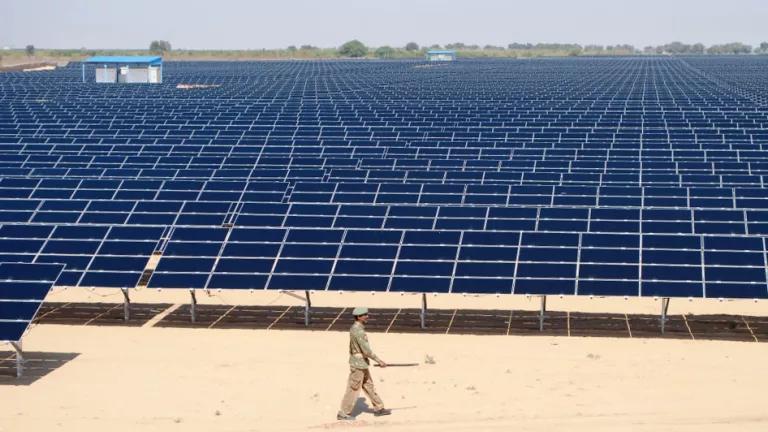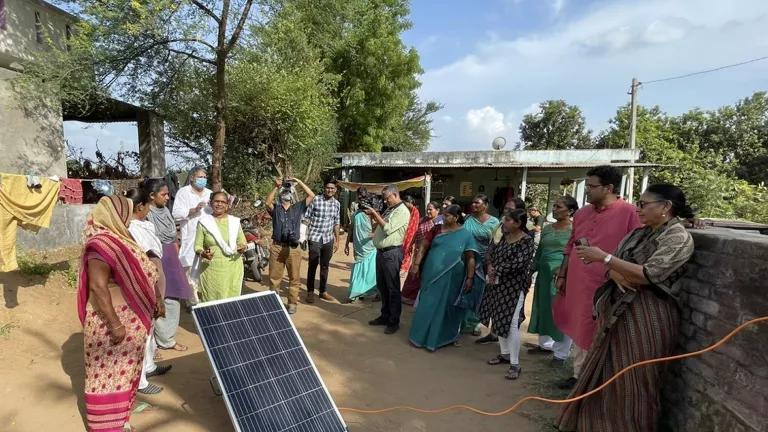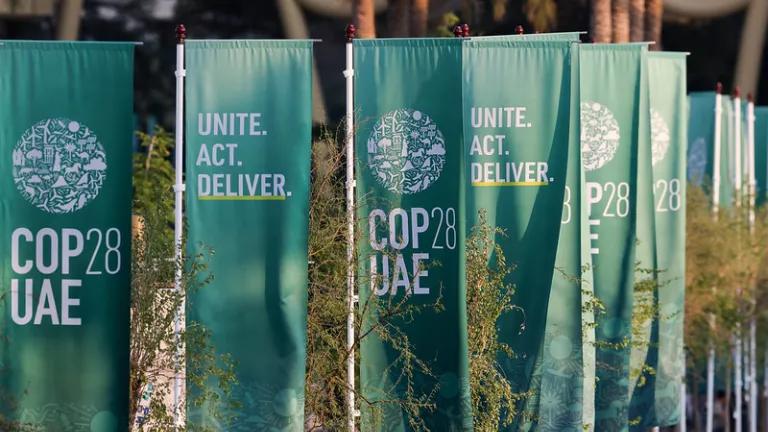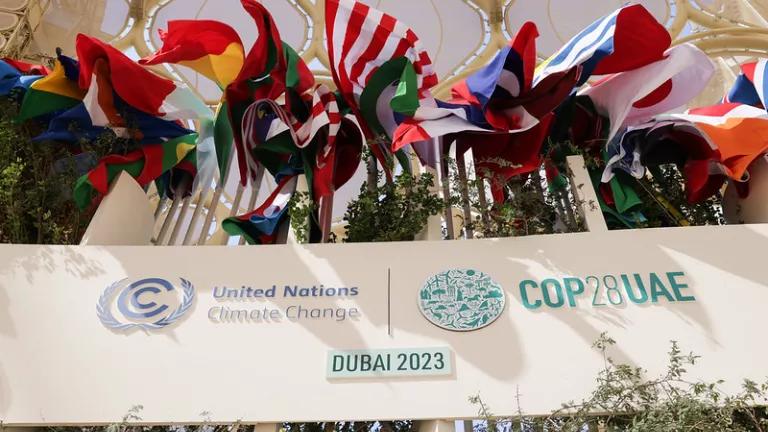
A large array at Kiran Energy’s 20 megawatt solar plant in Jodhpur, Rajasthan
NRDC
With its dispiriting apathy about climate change, the Trump administration is ceding U.S. leadership to others in the world. India, for one, is aggressively moving ahead with climate action and clean energy development that will protect people from climate harm and boost its economy. India’s doing several hard things at once, struggling to power its fast-growing economy, lifting millions out of poverty and building a clean energy economy. This is bold leadership.
Prime Minster Narendra Modi and his cabinet wisely see the need for India to keep its commitments under the Paris climate agreement—not retreat from them. Why? Because it’s in India’s best interests to help ensure we all have a healthy, livable planet in the years ahead.
Minister Piyush Goyal, India’s minister with independent charge for power, coal, mining and renewable energy, recently emphasized India’s commitment to climate change:
"Clean energy is not something that we are working on because somebody else wants us to do it. It’s a matter of faith and the faith of the leadership in India. Nothing on Earth is going to stop us from doing that."
India’s Commitment to Clean Energy
India’s targets under the Paris Agreement are focused on clean energy expansion, with an early goal of 100 gigawatts of installed solar energy by 2022. The targets are based on domestic action and widely-supported across the government.
The key features of India’s Paris targets are:
- Reduce energy emissions intensity by 30-35% by 2030 from 2005 levels
- Increase the share of non-fossil fuel energy to 40% of India’s energy mix by 2030
- Focus on a climate adaptation strategy of enhancing investments in development programs in areas vulnerable to climate change, including health and disaster management
- Create an additional carbon sink of 2.5 to 3 billion tonnes of CO2 equivalent through increasing forest and tree cover by 2030
Engaging Business to Achieve the Paris Climate Targets
To advance implementation of the Paris Agreement, the Indian government along with civil society leaders recently held a business-focused roundtable, “Post-COP 22 Corporate Consultations Implementing India’s Climate Goals: Implications & Opportunities for Indian Industry.” During the discussions, Special Secretary R.R. Rashmi from the Ministry of Environment, Forests and Climate Change, emphasized the critical role of industry in achieving India’s climate goals.
Industry leaders echoed strong support for clean energy at a roundtable convened by The Energy Resources Institute and the World Resources Institute India’s greenhouse gas program. Business groups and civil society groups, including NRDC, presented recommended actions to achieve progress that aligns with government programs.
Highlights from the business roundtable:
- The Indian electricity sector is a big opportunity for climate action. Decarbonization of the electricity sector will only be possible with renewable energy, and promoting the use of electric vehicles would generate dual benefits by increasing electricity sales and using power generated from renewable sources.
- Clean energy innovation is needed. Indian industry still faces a learning curve for technology substitution from fossil fuels to renewables and integrating energy efficiency, highlighting the need for more innovation on clean energy.
- Civil Society is vital. Education and outreach to the public and other stakeholders are a cornerstone of successful action, and organizations, such as TERI, WRI, NRDC and others, are needed to provide expertise, knowledge sharing, capacity development and more.
- Financing for clean energy projects is critical. Micro, small and medium industries in India still lack access to affordable (low-cost) finance while they contribute to more than 38% of India’s GDP, emphasizing the need for innovative financing solutions, such as green banks, green bonds, forex hedging mechanisms among others.
Unlike Trump’s “America First” energy plan that stands to leave America behind, and keep the U.S. chained to fossil fuels of our past that imperil our planet today, the Indian government clearly views the Indian industry—especially the clean energy market—as a largely untapped resource to create new jobs, improve the lives of millions and combat climate change. Without the admirable partnership and engagement of Indian industry, building a clean energy economy would be impossible. With it, the skies’ the limit.
Laasya Bhagavatula and Karan Chouksey contributed to this blog post.



